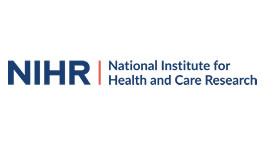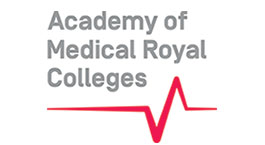Masters applications for 2023 entry are now closed.
Applications for September 2024 will open on Monday 25 September. Applications are now open for programmes with a January 2024 start. View our programmes »
| UCAS code |
1234 |
| Duration |
2 or 3 years part time distance
|
| Entry year |
2024 |
| Campus |
Online
|
| Discipline |
Healthcare and Medicine
|
| Contact |
|
| UCAS code |
|
| Duration |
Over 2 years part time distance |
| Entry year |
September 2024 |
| Campus |
Online
|
| Discipline |
Healthcare and Medicine
|
| Contact |
|
Overview
- The MSc Leading Clinical Research Delivery at Exeter is one of only three NIHR-AoMRC funded, fully online programmes, developed in line with the NIHR-AoMRC Clinician Researcher Credentials Framework. It supports practising clinical professionals aspiring to work in the clinical research delivery workforce.
- Practically focused course that builds the necessary networks to gain the skills and confidence required to lead and support clinical research delivery.
- Examine the infrastructures and policies shaping clinical research, learn how to engage with patients, plan projects, manage budgets and gain practical experience by supporting current clinical research projects. *
- Benefit from flexible access to high-quality interactive online learning modules tailored to meet the challenges and opportunities for clinical research in the 21st Century NHS, whilst supporting the Government’s plan to create a world-leading UK clinical research environment. The report Saving and Improving Lives: The Future of UK Clinical Research Delivery provides further detail of the ambitious vision for the future of clinical research delivery.
Top 10 in the UK for our world-leading and internationally excellent Clinical Medicine research
Our Public Health research is 11th in the UK for Research Power
Major capital investment in new buildings and state-of-the-art facilities
Accreditations
As announced on the NIHR website on 21 October 2022, the MSc Leading Clinical Research Delivery is an extension of the PGCert Leading Clinical Research Delivery. The MSc and PGCert are partially funded by the NIHR-AoMRC and have been developed in line with the NIHR-AoMRC Clinician Researcher Credentials Framework to support practising healthcare professionals aspiring to work in clinical research delivery.
Entry requirements
Normally a minimum 2.2 Honours degree (or equivalent) in a relevant discipline. Relevant clinical or professional experience (more than two years post-qualification) may be taken into consideration as evidence of equivalency.
Applicants will be experienced healthcare professionals from any registered healthcare discipline, such as medicine, nursing, midwifery and the allied health professions (including pharmacists and healthcare scientists), or those who have worked in a relevant role for at least two years (e.g. clinical trials manager, clinical research practitioners, university postdoctoral researcher).
The target audience for this programme are clinical researchers based in NHS / public funded healthcare settings in England. We also welcome applicants from academia, social care, the devolved UK nations and countries outside the UK for whom the content is relevant.
Students who have successfully completed the PGCert will be eligible to join the PGDip / MSc programme with their prior learning recognised.
Students joining the University of Exeter from another institution can use the Accreditation of Prior Learning (APL) process. You should read the information regarding the APL process before applying: APL process.
Students who are currently undertaking the PGCert at Exeter and wish to progress to the PgDip/MSc should contact us at the point of application to confirm use of credits for APL purposes.
As part of your application, you will need to upload a completed PDF version of the linked Expression of Interest form in the references section of University Admissions Portal.
If you are joining the University of Exeter Leading Clinical Research Programme following completion of the PGCert Leading Clinical Research Delivery at another institution, please ensure you select the correct course (see details on the Expression of Interest form). You will also need to complete the APL process alongside your application APL process.
Information about bursaries can be found in the Funding and scholarships section below.
Entry requirements for international students
Please visit our entry requirements section for equivalencies from your country and further information on English language requirements.
Read more
Entry requirements for international students
English language requirements
International students need to show they have the required level of English language to study this course. The required test scores for this course fall under Profile B2. Please visit our English language requirements page to view the required test scores and equivalencies from your country.
Course content
Healthcare is becoming increasingly complex, with clinical work and clinical research requiring unprecedented levels of cooperation between diverse providers and multiple sectors. We will provide you with a strong theoretical foundation covering topics such as research leadership, equality, diversity and inclusion, as well as planning and piloting to ensure study feasibility and optimal delivery. Alongside this, you will consider the practicalities of doing clinical research and ways to improve participant recruitment. Our Research Practice Experience modules enables you to put theory into practice by being directly involved with a clinical research project.
This programme has been developed in line with the NIHR-AoMRC Clinician Researcher Credentials Framework to support practising healthcare professionals aspiring to work in clinical research delivery. Through the programme, you will continue developing your patient-centred approach to research delivery and understanding of measures of health outcomes. With a strong emphasis on using reflective practice to apply and transfer learning from the course, you will develop yourself as an adaptable, reflexive practitioner ready to lead clinical research delivery.
Specialisms
Students following the MSc will be able to specialise in one of four areas:
- leadership,
- research methodologies,
- genomic medicine
- or public health,
by taking relevant 15-credit modules and choosing a related dissertation topic.
Contact dates
Leading Clinical Research Delivery contact days timetable 23/24
Please note: This timetable is draft and subject to change.
Modules
The programme is divided into study units or modules which are assigned a number of credits. The credit rating of a module is proportional to the total workload, with one credit being nominally equivalent to 10 hours of work. Each 15-credit module in the MSc Leading Clinical Research Delivery therefore requires 150 hours (around 12 hours of study per week, across a term). The 60-credit Master’s project is a full-year project that should take around 600 hours to complete. Most of your study will be asynchronous, allowing you to work through the online material at a time convenient for you. Modules will also have some compulsory contact days, where you will meet with your tutor and peers via Teams or Zoom (dates will be provided in advance to aid your planning).
The modules we outline here provide examples of what you can expect to learn on this degree course based on recent academic teaching. The precise modules available to you in future years may vary depending on staff availability and research interests, new topics of study, timetabling and student demand.
Students following the MSc will be able to specialise in one of four areas listed below, by selecting relevant 15-credit optional modules and choosing a related dissertation topic. The four specialisms are aligned to our postgraduate and research strengths at Exeter and exemplify the themes outlined in the Future of UK Clinical Research Delivery report.
- Leadership: (options selected from 4 leadership modules)
- Research Methodology: (options selected from 3 research methods modules)
- Genomic Medicine: (options selected from 4 genomic medicine modules)
- Public Health: (options selected from 4 public health modules)
Fees
2024/25 entry
UK fees per year:
MSc: £5,800pa part-time 2 years, £3,900pa part-time 3 years
PGDip: £3,900pa part-time 2 years
PGCert: £3,900
Standalone module fees: UK: £1,100 per 15-credit module
International fees per year:
MSc: £13,750pa part-time 2 years, £9,250 pa part-time 3 years
PGDip: £9,250pa part-time 2 years
PGCert: £9,250
Standalone module fees: International: £2,500 per 15-credit module
Scholarships
We invest heavily in scholarships for talented prospective Masters students. This includes over £5 million in scholarships for international students, such as our Global Excellence Scholarships*.
For more information on scholarships, please visit our scholarships and bursaries page.
*Selected programmes only. Please see the Terms and Conditions for each scheme for further details.
Funding and scholarships
The MSc, PGDip and PGCert Leading Clinical Research Delivery course attracts funding from the DHSC and other funding bodies. To be considered for a bursary you must have been allocated a place on the LCRD course (for the one-, two- or three-year pathway). Please ensure you make your application to the course as well as for a bursary. Your bursary application will be disregarded unless you have been offered a place on the course. Some DHSC bursary funding will be available to eligible applicants in the 2024-25 academic year.
Full details of bursary availability, eligibility criteria and deadlines for 2024-25 entries will be posted on the NIHR Clinician Researcher Credentials Framework website in spring 2024.
Once the 2024-25 bursary details have been announced, information on how to apply for a bursary will be posted. Please visit this website or the NIHR Clinician Researcher Credentials Framework website via the link above for updates.
Teaching and research
Our online programme has been designed with flexibility in mind enabling you to enhance your knowledge and skills around your current schedule. The programme will include a combination of evidence-based educational formats, including workplace-based learning. You will have access to high quality interactive online learning to develop knowledge and insight in respect of the approaches to, and delivery of, clinical research. You will develop key knowledge, skills and behaviours to enable you to demonstrate capability as a clinician researcher when delivering aspects of networked research within your own practice.
During the Research Practice Experience (RPE) and Advanced RPE (ARPE) modules, you will develop practical experience in the supportive context of a clinical research network while working on existing research studies.
You will participate in activities such as scoping current evidence and maximising the potential of routinely collected data, to tasks such as project planning and budget management. Through facilitated group discussions and the use of case studies, you will explore different types of research studies and explore the potential challenges such as how to improve participant recruitment and how to problem solve whilst doing clinical research.
In addition to core modules you will also choose an optional module which will enable you to excel in an area of importance to research delivery in the NHS, such as epidemiology, clinical trials, research methods, genomics or public health related modules.

Professor Karen Mattick
Professor of Medical Education

Dr Kerry Gilbert
Inaugural Programme Director

Dr Anne-Marie Russell
Senior Lecturer

Ash Hanson

Amanda Wallace

Jo Studham
Lecturer
Professor Karen Mattick
Professor of Medical Education
Professor Karen Mattick is Professor of Medical Education and is overseeing the development of the online Master's in Leading Clinical Research Delivery, which aligns well with her commitment to interprofessional learning and seeing research inform practice. Her research interests are the experiences of doctors-in-training, especially in relation to feedback conversations and prescribing, and the impact of these on careers and wellbeing. She is Deputy Editor for the journal Medical Education, Principal Fellow of the Higher Education Academy and a National Teaching Fellow.
Profile page
Dr Kerry Gilbert
Inaugural Programme Director
Dr Kerry Gilbert is the Inaugural Programme Director for the online Master’s in Leading Clinical Research Delivery programme. Kerry is a Senior Lecturer in Medical Education who has a background in Medical Education spanning more than 15 years. She has expertise in curriculum creation, development and delivery across several areas of the development of life-long skills for learning. Kerry has demonstrated expertise in development of learning materials for online delivery and delivered online educational learning sessions locally, nationally and internationally. Kerry is a Senior Fellow of the Higher Education Academy (now Advance HE).
Profile page
Dr Anne-Marie Russell
Senior Lecturer
Dr Anne-Marie Russell is a Senior Lecturer and has extensive experience in clinical research and global collaborations with interdisciplinary professionals specialising in interstitial lung diseases. She maintains clinical activities through honorary appointments with Royal Devon and Exeter and Imperial College Healthcare NHS Trusts and maintains a strong commitment to shared decision making and delivering research informed clinical care. She has experience of postgraduate teaching in advanced practice and research methods. She is the module lead for Integrity and Leadership in Research for Health and Healthcare.
Profile page
Ash Hanson
Ash was a lecturer in paramedic education, until moving to Devon to join the LCRD team and is external examiner on two undergraduate paramedic programmes. Ash is an active researcher on several NIHR studies, focusing on critical care and public health. Her PhD studies explore ‘Theories of Implementation for Pre-Hospital Guidelines’. Next year Ash will travel to Australia to undertake a project to investigate international models for healthcare student transition into the workplace as part of her Churchill Fellowship. She is Fellow of the Higher Education Academy (now Advance HE).
Amanda Wallace
Dr Amanda Wallace is a Senior Lecturer and has extensive experience in clinical research. As a prior NIHR Research for Patient Benefit grant holder, she is passionate about using her experience to support the clinical research leaders of the future. She has experience of post-graduate teaching in research methods and advanced physiotherapy practice; and has supervised and mentored masters and doctoral students.
Amanda maintains a keen interest in rehabilitation and improving patient outcomes through research informed practice. She is the module lead for Advanced Research Practice Experience on the PGDip/MSc pathway.
Jo Studham
Lecturer
Jo Studham has worked in clinical research for over 30 years. She previously worked as NIHR Exeter Clinical Research Facility (CRF) Manager. She was responsible for the day-to-day operation of the CRF and its multi-disciplinary team. She has worked in all areas of Clinical Research delivery from proof of concept through to post marketing surveillance, from cradle to grave, and been a member of several Ethics Committees. Jo trained as a registered nurse as well as completing a degree in Anthropology and Geography and a MSc in Health Promotion. This is her first role as a Lecturer and she is very excited about the new challenge.
Careers
The NHS needs to develop and retain a broad range of clinician researchers, individuals with responsibility for leading or contributing to research locally within their clinical setting, to lead and support high quality clinical research in areas where there is the greatest disease burden. The Leading Clinical Research Delivery porgrammes provide an alternative route into clinical research for experienced clinicians who are new to clinical research.
The programme will provide the necessary networks, skills and confidence needed for clinicians to lead and support clinical research.
Careers support
All University of Exeter students have access to Career Zone, which gives access to a wealth of business contacts, support and training as well as the opportunity to meet potential employers at our regular Careers Fairs.




















